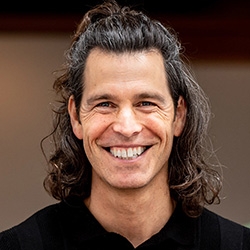

NVC Resources on Exercises and Practices
-
Part of making your relationship a priority while maintaining autonomy means you consider the impact your actions may have on your relationship and look to negotiate ways all needs can be honored. To do this while not losing yourself, practice writing down your needs and guessing their needs beforehand. Make an upfront request to create a shared understanding about what’s most important, before discussing strategies or decisions.
-
It can seem like anger protects you. But it's your ability to name your needs, honor your range of feelings, and act on your needs that keeps you healthy and safe. When you remain present for an emotion and allow it to flow, it'll last just over a minute and dissolve, making room for the next layer of experience. Practice noticing any anger you have, without resistance. Set up self-empathy or space be heard empathically.
-
Blame is a misguided habit that's used to avoid pain and suffering, offering only a momentary distraction and oversimplifies complex histories. It also disconnects us from choice and agency, blocks us from discovering more about ourselves and others, and can keep us from having compassionate, self responsible conversations. Instead, we can practice speaking in terms of impact and notice our experience without trying to escape it.
-
Instead of doing an "apology" using the NVC framework, you can do a "do over" to express regret. This roleplay exercise shows you how. You'll be talking about your needs that were not met by what you did, expressing what you wanted to say instead of what you said, and more.
-
We can shift from being absorbed and identified with our inner chatter and feelings to being the space of awareness of these things. Observe your breath. Then observe your mind generating thoughts. Next, feel sensations of your body, particularly the difficult ones. Now, connect with the underlying energy of needs. Ask your unconscious mind for universal needs words related to what you now notice, think and feel.
-
Mary Mackenzie explains that empathizing with our closest loved ones can be difficult because they matter so deeply to us, past experiences might create emotional barriers, and we might fear losing ourselves in the process.
-
Strengthen your NVC practice to meet conflict with empathy, and ask for what you need.
-
As a beginner in NVC, you might find your attempts to practice your NVC only increases conflict, disconnection and upset in your interactions with people. Or perhaps people start seeing you as inauthentic. From there, you may find yourself sinking deeper into self-judgement. In this article, Jim Manske shows us how to shift these potential unintended outcomes, into deeper NVC consciousness that brings in more warmth, presence and open-hearted connection.
-
Certified CNVC trainer Roxy Manning, Phd, answers a question: how do we use the term "harm" in NVC? Think of the word "harm" as an unmet need, practice observation to identify the need or needs that are not met.
-
Practice radical honesty and integrate NVC into daily life through demos, role-play and exercises.

Quick Links
Subscription Preferences
Stay In Touch!
Looking for ways to keep up with NVC Academy news, get special offers, free resources, or words of inspiration? Here are five ways to stay engaged:










